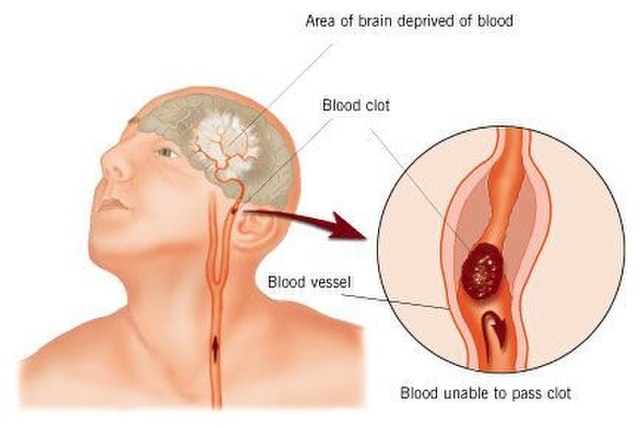You might want this for your next stroke but if your hospital has no research analyst whose only job is to follow stroke research and get it implemented in the hospital, then you will be completely screwed. Your doctor and hospital will face no consequences for failure to keep up with stroke research but you sure will. How long will YOU let your stroke hospital be incompetent?
Reprogramming brain cells to restore vision after a stroke
THIS BLOG IS ALSO AVAILABLE AS AN AUDIO CAST
About one third of stroke survivors experience vision loss. It can be a devastating side effect as most patients will not fully recover their vision and there are currently no reliable treatments available. But thanks to a collaborative effort by two teams of researchers from Purdue University and Jinan University in China, there may be a way to use gene therapy to recover lost vision after a stroke.
A stroke happens when part of the brain is starved of oxygen which can result in death of brain cells or neurons. Oftentimes this is caused by a blockage in an artery in the brain. Given the location of these vital arteries, most strokes lead to loss of motor function and in some cases, permanent vision loss.
The brain is an incredible machine and capable of remapping its neural pathways enough to restore some visual function, but this isn’t always the case. The neurons that are destroyed in the process of experiencing a stroke do not regenerate and lose their ability to communicate/transmit information between different areas of the brain, and between the brain and the rest of the nervous system.
Two research teams, one led by Alexander Chubykin at Purdue University’s and the other led by Gong Chen at Jinan University, have taken a different approach to neural regeneration by reprogramming local glial cells into neurons, therefore restoring connections between the old neurons and the newly reprogrammed neurons.
In a news release, Dr. Chubykin says the results in the lab look promising. “We can watch the mice get their vision back. We don’t have to implant new cells, so there’s no immunogenic rejection. This process is easier to do than stem cell therapy, and there’s less damage.”
The collaborative research, published in the journal Frontiers in Cell and Developmental Biology, is promising not only in aiding with vision restoration after a stroke but could also lead to similar treatment for reestablishing motor function. Visual function is easier than motor skills to measure accurately and the scientists are looking into the effectiveness of this procedure in live mice using advanced optical imaging tools. If the study continues to provide positive results, it might not be long before human trials are started.
CIRM is also funding clinical trials to help repair vision loss and to help people recovering from a stroke.

No comments:
Post a Comment